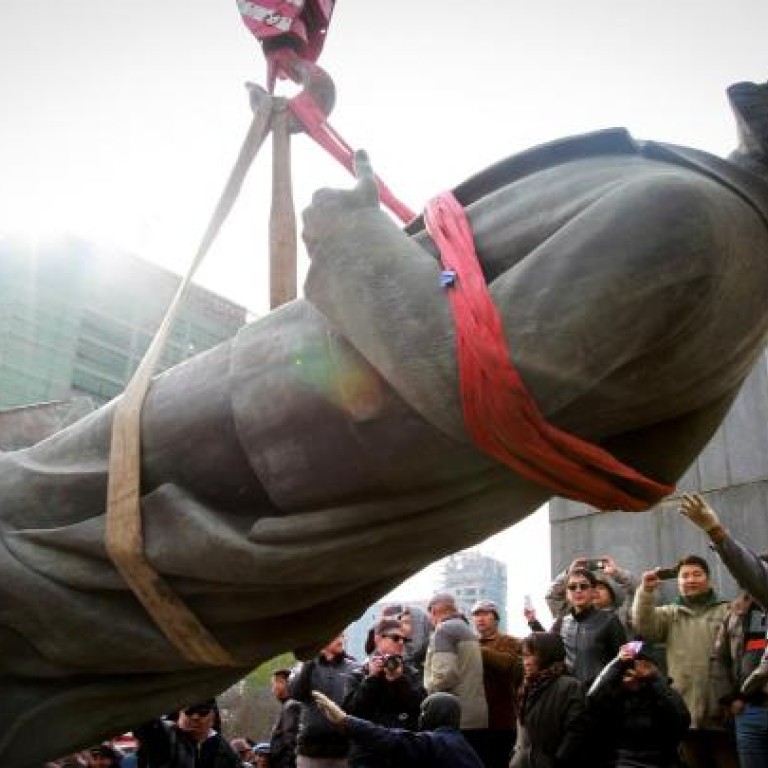
Last statue of Lenin taken down in Ulan Bator
Last statue of Soviet leader taken down in city as Mongolia forges closer ties with West and China
Mongolia's capital has removed its last statue of Lenin, one of the final vestiges of the country's longtime alliance with the Soviet Union as it fosters closer links to the West and China.
Ulan Bator's mayor Bat-Uul Erdene branded the late communist leader Vladimir Lenin a murderer after the bronze statue was hoisted onto a lorry on Sunday as a small crowd of bystanders threw old shoes at it.
Mongolia was effectively a Soviet satellite state during the cold war until it abandoned communism without a shot being fired in 1990.
"Approximately 100 million people were killed during the communist era. So we have seen that the communists killed even more people than those who died in the world wars," said Bat-Uul, a fierce opponent of communism and former protest leader who helped usher in a new era of democracy more than two decades ago. "And the person who started all of this was Lenin."
The 58-year-old statue will be auctioned off, with a starting price being set at 400,000 tugrik (HK$2,260).
Lenin was once worshipped as "Teacher Lenin" by schoolchildren in Mongolia, a landlocked country that, despite rich mineral and other resources, remained impoverished during seven decades of dominance by Moscow as it was restricted to trading mainly with the Soviet Union.
But Mongolia is undergoing rapid modernisation - economic growth hit a stunning 17.3 per cent in 2011 - built on the back of a spectacular mining boom that has drawn in Western and other foreign investors lured by vast reserves of coal, copper and gold.
Mongolian foreign trade, formerly conducted almost entirely with the Soviet Union, is now dominated by China and its appetite for Mongolian resources.
Thousands of Lenin statues were erected across the former USSR after his death in 1924 but were torn down following the collapse of the Soviet bloc in 1991. The Ulan Bator statue survived so long because the Russian leader is revered by some for supporting Mongolia in its fight for independence from China in 1921.
